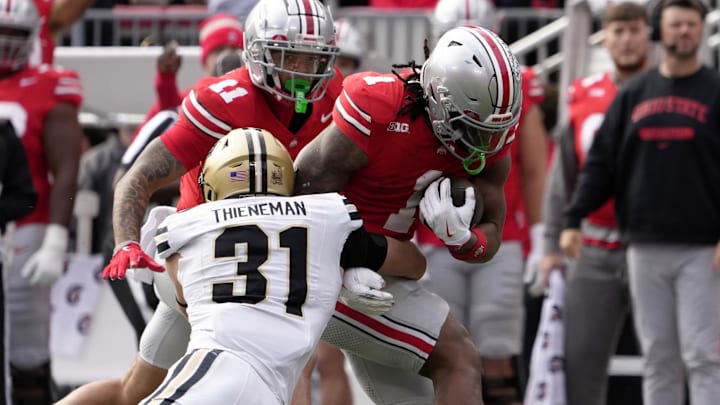There's no need for hand-wringing or fake outrage: ESPN's preseason FPI ranking has Oregon exactly where they should be, and it's a good thing for the Ducks' prospects as a national contender.
In an ideal world preseason rankings wouldn't exist. All college football debates would be settled on the field and no rankings of any kind would be posted until the end of Week Six of the College Football calendar. Teams would be ranked and rated strictly on their results.
But this is not an ideal world; it's a TV contract/maximize the audience world and games have to be hyped and audiences have to be primed and anticipation and storylines have to be created.
NEW: ESPN’s computer-generated FPI has updated for the 2025 College Football season👀https://t.co/ZQxmtKVmx9 pic.twitter.com/jsmFgvjnTX
— On3 (@On3sports) June 3, 2025
Therefore rankings, ratings and predictions will arrive in our inbox and news feeds ceaselessly until the opening kickoff of the first game on August 23, when Iowa State plays Kansas State in Dublin, Ireland.
There are four games in Week Zero, and it's a little unsettling that there's a thing called Week Zero, and it culminates in a 4:30 P.T. game, Stanford at Hawaii. Thursday August 28 has 17 games including Boise State at South Florida.
Eleven games kick off on Friday night. The Ducks host Montana State 1 p.m. PT on the Big Ten Network, Saturday August 30, in 87 days.
ESPN's FPI stands for the Football Performance Index, a matrix compiled by stats guru Bill Connelly based on returning production and other data. It's designed to predict future performance and provide a basis for measuring schedule strength.
Like most things ESPN it is heavily weighted toward the SEC and traditional powers. After all the first five schools are Texas, Georgia, Alabama, Ohio State and Penn State. USC, Auburn and Texas A&M are always higher than they should be.
It's pretty much universal in all preseason rankings/ratings. The SEC gets a gob of teams rated high, so when they lose to other SEC teams, it inflates their rankings and strength of schedule. "We beat SIX Top 25 teams," is the battle cry every year.
At playoff time, the lobbying effort always centers around, "Look at our strength of schedule!" Even at 9-3 and a November game against Furman, the pitch remains the same.
In Oregon's case, the FPI seems deadly accurate and fair. The Ducks have a solid roster and they're coming off a 13-1 season.
Yet they have some questions. They have an new quarterback and a rebuilt offensive line.
But the program is strong. This is a solidly-constructed roster with depth on the defensive line and running back. New safety Dillon Thieneman's top five offers last year were from Oregon. Ohio State, Georgia, Penn State, and Texas.
Dillon Thieneman's top 5 portal offers🤧#collegefootball #transferportal #cfb #oregonfootball pic.twitter.com/6TB2gT0vZL
— Ducks of a Feather (@ducksofafeather) June 3, 2025
Placing them at six seems exactly right. It's high enough to recognize the strength of a program that's won 25 games over the last two seasons, yet it gives them something to shoot for.
If they handle their business they can move into the top four. If they match expectations they'll make the playoffs.
That seems fair. The SEC tilt of the overall Top 25 doesn't. It's like the last two years never happened.
